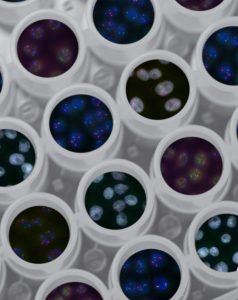A CHARITY is thanking NHS staff and patients for their help in crucial genetic research.
National charity Sepsis Research FEAT is paying homage to Clinical Trials Day today by thanking NHS staff and patients.
The efforts of NHS staff and patients helped to collect over 12,000 DNA samples as part of the revolutionary research.

DNA donations from NHS patients has helped accelerate the research.
Sepsis Research FEAT is thanking patients in intensive care and their families who donated DNA samples for the study and to the NHS staff who took the samples.
These crucial samples gave scientists early data which helped them search for COVID treatments.
Colin Graham, Chief Operating Officer at Sepsis Research FEAT, said: “On behalf of everyone at Sepsis Research FEAT, I would like to offer my immense thanks to NHS staff, patients and their families for helping this important research through the DNA samples gathered.
“Not only have these samples provided crucial data that has helped scientists in the fight against COVID, they will also play an important part in the fight against sepsis.”
The research, which is being conducted at Edinburgh University’s Roslin Institute, is studying the genetics of susceptibility and mortality in critical care (GenOMICC), which the charity has played a role in funding for three years.
The study explores how our genes can influence the body’s response to infections such as COVID and sepsis.
Since there are similarities between sepsis and COVID, the research at the Roslin Institute was used to help fight the pandemic.
When COVID began to spread, the researchers had already been collecting DNA samples from sepsis patients in intensive care units in the UK.
Dr Kenneth Baillie, who leads the team at the Roslin Institute, said: “Our ability to deliver world-leading research during the pandemic is a direct consequence of the funding support for GenOMICC from Sepsis Research FEAT, along with the help of NHS staff and patients in collecting samples.
“Because we were already established across the UK before the COVID outbreak, we were able to extend recruitment to include COVID cases. GenOMICC is now the single best-recruiting consented research study in the history of UK critical care medicine.”
The researchers identified five genes which when damaged lead the body’s immune response to go into overdrive putting patients at risk of lung inflammation, potential organ failure or even death.
Working in collaboration with Oxford University and Genomics England the number of gene samples available to the Roslin Institute increased.

